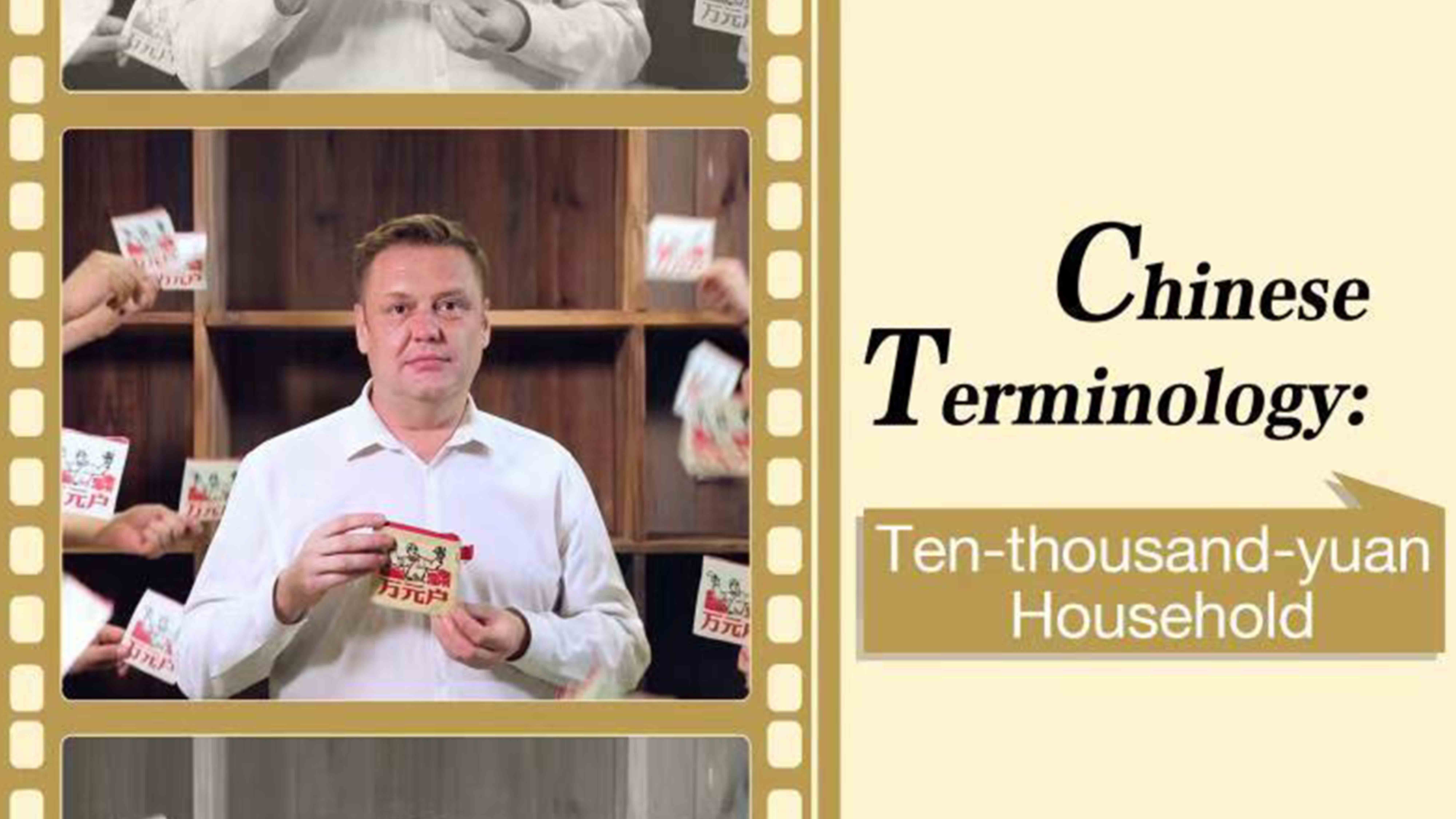
China
09:24, 02-Dec-2018
Chinese Terminology: Ten-thousand-yuan Household
Updated
08:38, 05-Dec-2018
By Zheng Chunying, Sun Zhifu
02:11

What does ten-thousand-yuan (10,000 yuan) mean to a modern family? That's about 1,500 U.S. dollars. It's hardly enough for a modest family holiday now, but in the late '70s and early '80s, it was a significant amount of money.
Not many ordinary families would have had more than 1,000 yuan (143 U.S. dollars) in savings. Indeed, the average monthly wage would have been less than 30 yuan -- not even five dollars.
If a family had savings of 10,000 yuan, that family was considered nouveau riche. China's senior leader at the time, Deng Xiaoping, wanted to help certain people in the country to get rich first, with the aim of achieving common prosperity.
This has been a major government policy ever since. And the emergence of China's reform and opening up program brought more families into this erstwhile exclusive group.
So as China's economy took off, and with it the spending power of its huge population, the term "ten-thousand-yuan household" slowly became redundant. In some developed regions in the country, it's not rare to find a “million-yuan household.”
And the 19th CPC National Congress pointed out the need to narrow the gap between rich and poor, and to take targeted measures in poverty alleviation.
CGTN's special series “Chinese Terminology”, which was launched on November 26, marks the 40-year anniversary of the country's reform and opening up program. The episodes, hosted by CGTN anchors Jeff Moody and Jonathan Betz, are being aired every day at 20:15, 12:00 and 16:00 BJT. Click on the link to find out more about this amazing shift for China's economy.

SITEMAP
Copyright © 2018 CGTN. Beijing ICP prepared NO.16065310-3
Copyright © 2018 CGTN. Beijing ICP prepared NO.16065310-3